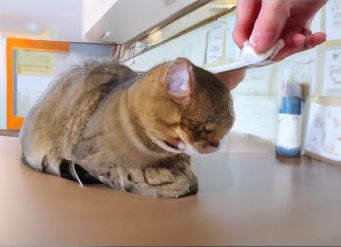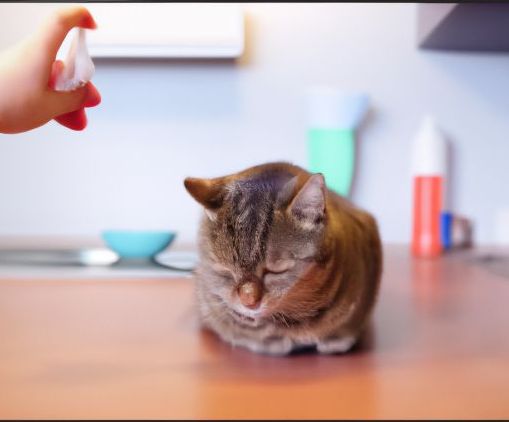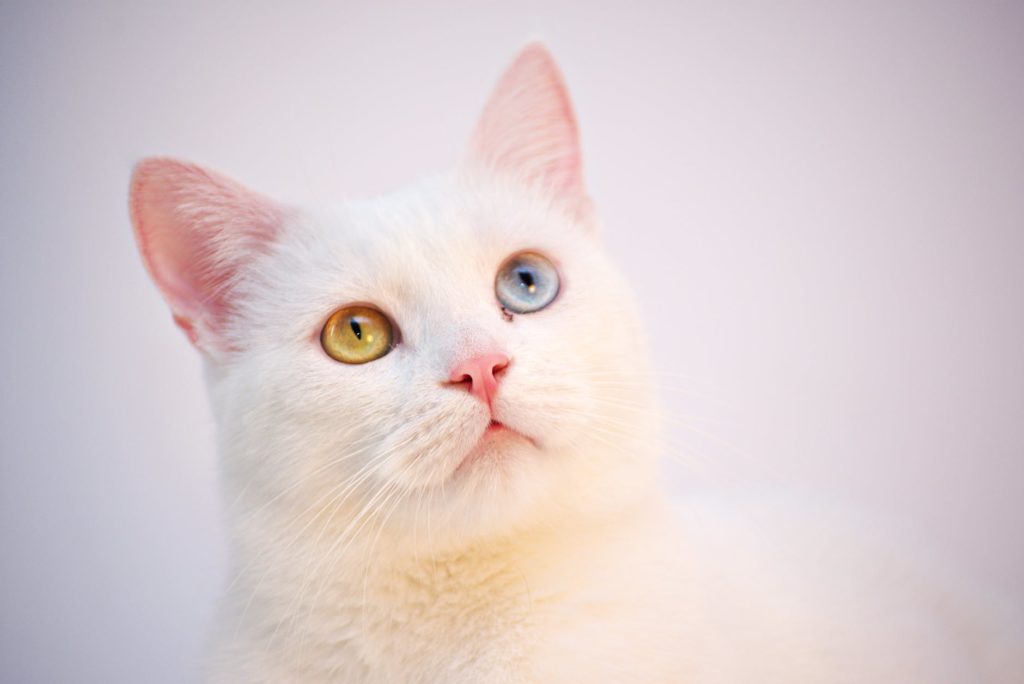Never Spray Water On Your Cat
As pet owners, we all want our furry friends to be happy and healthy. Sometimes, however, we may not realize that certain actions we take can actually be harmful to them. One such action is spraying water on your cat as a form of punishment. Here are 5 reasons why you should never do this:

Understanding how to interact effectively with your feline friends can significantly enhance your relationship. It’s essential to choose positive reinforcement over punitive measures if you truly want a harmonious existence with your cat. In this blog post, we will delve into ten compelling reasons why you should never spray water on your cat or engage in any form of punishment, and why such methods can do more harm than good.
Table of Contents
1. The Impact of Fear: Understanding Cat Psychology
Cats are incredibly sensitive creatures, and their experiences shape their behavior and emotions. When you spray water on your cat, you initiate a fear response rather than a learning opportunity. Never Spray Water On Your Cat. Cats do not understand punishment in the same way humans do; they may associate the unpleasant experience with you rather than the behavior you wish to correct. This association can create an environment of fear and mistrust.
Moreover, this fear can manifest itself in various ways, including anxiety, aggression, or withdrawal. A frightened cat may start exhibiting defensive behaviors, such as hissing or scratching. Never Spray Water On Your Cat. Thus, not only does spraying your cat fail to rectify the behavior, but it also damages the trust and bond that you have worked hard to cultivate.
2. Negative Reinforcement Only Breeds Negative Behaviors
Punishing a cat using water sprays or any other methods often leads to negative reinforcement. When a cat is subjected to a punishment, it might momentarily stop the unwanted behavior, but it does not teach the cat anything constructive. Never Spray Water On Your Cat. Instead, it may lead to the development of new problems. For instance, the cat may learn to hide whenever it wants to play or explore, limiting its interactions with you and its environment.
Additionally, behaviors like litter box avoidance may arise due to stress from negative experiences. Instead of addressing the sprayer’s intended purpose—changing behavior—this tactic often backfires and reinforces the idea that the cat should be wary of its owner. Never Spray Water On Your Cat. Trust is essential in any relationship, and damaging that trust will have long-lasting effects on your bond with your cat.
3. Communication Challenges: Understanding Cat Behavior
Cats express themselves through body language, vocalizations, and other behaviors. When we misinterpret these signals and respond with punishment, we further complicate the relationship. Never Spray Water On Your Cat. Spraying water might stem from a misunderstanding of normal cat behaviors, such as scratching furniture or climbing onto counters. Instead of resorting to punishment, understanding why your cat exhibits these behaviors and addressing their needs is crucial.
For example, if your cat scratches the furniture, it may be expressing a natural instinct to keep its claws trimmed. By providing a suitable scratching post, you can redirect this behavior positively rather than scaring your cat with water. Never Spray Water On Your Cat. Recognizing this simple fact can lead to better solutions that establish a more profound connection and understanding between you and your feline friend.
4. Physical Well-Being: Health Risks of Punishment
Another vital reason to avoid spraying water on your cat relates to its physical health. Beyond causing psychological distress, water spraying can contribute to health issues. Never Spray Water On Your Cat. For instance, a cat that becomes anxious may experience gastrointestinal problems, such as diarrhea or vomiting. In severe instances, chronic stress can lead to more significant health issues like urinary tract infections or compromised immune systems.
Instead of resorting to destructive methods, focusing on creating a secure environment for your cat translates to healthier living. Never Spray Water On Your Cat. Engaging your cat in play, ensuring it has a proper diet, and offering stimulating toys can help prevent unwanted behaviors without resorting to fear-based tactics.
5. The Importance of Positive Reinforcement
A crucial element of training and maintaining behavioral boundaries in any animal is positive reinforcement. This method involves rewarding desired behaviors rather than punishing undesired ones. Never Spray Water On Your Cat. For cats, positive reinforcement might involve treats, petting, or praise whenever they exhibit good behavior, such as using a scratching post or playing gently.
Implementing a system of rewards leads to a happier cat and fosters a loving relationship between you and your pet. Rather than creating fear, you develop an environment where your cat feels valued and understood. Never Spray Water On Your Cat. Over time, this positive interaction promotes better behavior without the risk of backlash that comes with punishment.
6. Building a Healthy Bond: Trust Takes Time
Trust is the cornerstone of a strong relationship between you and your pet. However, once that trust is broken, it takes considerable time and effort to rebuild. When you spray water on your cat or punish them for unwanted behaviors, you risk losing that bond irrevocably. Never Spray Water On Your Cat. Cats thrive in environments that uphold trust and emotional support.
To build a healthy bond, invest time in understanding your cat’s unique personality and needs. Spend time playing with your cat, engaging in activities that stimulate its curiosity. Never Spray Water On Your Cat. When your cat sees you as a friendly presence, it will naturally gravitate towards positive behavior, further deepening the bond you share.
7. Understanding Individual Personalities: Tailoring Your Approach
Every cat possesses an individual personality. While some may respond favorably to strict training, others may become more anxious and fearful. Never Spray Water On Your Cat. Therefore, a one-size-fits-all approach to training can prove detrimental. What works for one cat may not work for another, and you may inadvertently cause stress, anxiety, or behavioral issues in your pet.
Instead of using punitive actions like water spraying, observe your cat’s unique cues and experiment with different methods of training and engagement. Never Spray Water On Your Cat. Tailor your approach to suit your cat’s personality and needs, seeking a way that helps your cat thrive while ensuring your home remains harmonious and enjoyable for both parties.
8. Alternatives to Water Spraying: Exploring Positive Solutions
There are numerous alternatives to spraying water or punishing your cat. Environmental modification often serves as a key strategy. Providing ample scratching posts, interactive toys, and designated spaces for your cat to explore can deter unwanted behaviors. Never Spray Water On Your Cat. Whenever you notice your cat engaging in inappropriate actions, gently redirect it to more suitable activities or locations.
Additionally, engaging in playtime is an excellent way to foster a positive atmosphere. Investing time in activities that stimulate your cat’s mind creates opportunities for bonding, thus minimizing the likelihood of undesirable behaviors. Never Spray Water On Your Cat. A well-exercised cat is often less destructive, opening the door to a healthier, happier household.
9. Expert Advice: Seeking Professional Help
If you find that your cat’s behaviors remain concerning despite your best efforts, don’t hesitate to seek professional help. Animal behaviorists and veterinarians specialize in addressing the underlying issues that may contribute to unwanted behaviors. Never Spray Water On Your Cat. Consulting with professionals can unveil insights into why your cat behaves a certain way and provide you with tailored strategies to tackle any behavioral problems.
Professional advice helps you avoid common pitfalls while reinforcing a positive environment for your cat. Never Spray Water On Your Cat. You don’t have to navigate this journey alone; expert recommendations can make all the difference in returning peace and understanding to your home.
10. Embracing Compassion: The Path to a Fulfilling Relationship
Finally, embracing compassion in your interactions with your cat lays the groundwork for a fulfilling relationship. Understanding that your furry friend deserves patience and love is critical in cultivating a healthy bond. Never Spray Water On Your Cat. Rather than resorting to sprays or other punitive measures, focus on building trust, encouraging positive behaviors, and fostering an environment where your cat feels safe.
By remaining compassionate and understanding, you’re paving the way for a deeper connection with your cat. Celebrating successes, however small, lays the foundation for a lasting and harmonious relationship. Never Spray Water On Your Cat. Ultimately, your choices define the dynamics of your companionship, so choose wisely and nurture your unique bond.
In conclusion, the lesson is clear: never spray water on your cat, or use any form of punishment. Instead, opt for compassion, understanding, and positive reinforcement to encourage the best in your feline companion. Nurturing a loving and respectful relationship leads to a happier and healthier life for both you and your cat.
It can lead to fear and anxiety
Cats are naturally independent animals, and they possess unique personalities that require a gentle and understanding approach. Unlike dogs, they do not respond well to punishment or harsh training methods. Never Spray Water On Your Cat. When you spray water on your cat as a form of discipline, it can create a sense of fear and anxiety that lingers long after the immediate confrontation. This method of discipline can have lasting consequences, as your cat may start to associate you with negative experiences, leading to distrust.
The discomfort of being sprayed can significantly alter your cat’s behavior. Rather than discouraging the unwanted action, it may cause your cat to become skittish or increasingly anxious in your presence. Never Spray Water On Your Cat. Fearful cats often display withdrawal behaviors, hiding in corners or under furniture to escape perceived threats. In more severe cases, this tactic can lead to aggressive tendencies. A frightened cat may lash out, displaying behaviors such as scratching or biting as a defense mechanism. This anxiety not only affects your relationship with your cat but may also have long-term implications on their mental health and overall well-being.
Additionally, it’s essential to acknowledge that cats communicate differently than humans or even other animals. When they engage in behaviors we find frustrating, such as scratching furniture or climbing on counters, it’s often their way of expressing needs or instincts. Never Spray Water On Your Cat. Instead of punitive measures, employing positive reinforcement techniques can foster trust and encourage the desired behaviors.
Rewards for good behavior, gentle redirection, and creating engaging environments are more effective approaches. By building a nurturing relationship, you can help your cat thrive without inflicting unnecessary stress. Never Spray Water On Your Cat. Remember, understanding and compassion go a long way in promoting a healthy, happy feline companion.

It damages the trust between you and your cat
Cats are very intelligent animals, and they can quickly learn to associate certain actions with negative consequences. This ability to make connections is part of what makes them such fascinating companions. Never Spray Water On Your Cat. If you repeatedly spray water on your cat, they will eventually begin to associate you with the punishment, which can damage the trust and bond between you and your cat.
Over time, the relationship can become strained. When your cat feels fear or anxiety in your presence due to these negative experiences, it can lead them to avoid you or act defensively. Never Spray Water On Your Cat. This shift in behavior means that rather than coming to you for companionship, affection, or safety, your cat may start to see you as a source of stress. A once-loving bond built on mutual respect and understanding can erode quickly.
Moreover, cats are known for their sensitive nature. Unlike dogs, who often thrive on direct and assertive training methods, cats tend to flourish in environments that prioritize gentle guidance and positive reinforcement. Never Spray Water On Your Cat. If a cat feels threatened by the actions of their owner, they are less likely to engage in desired behaviors and may instead become more withdrawn or aggressive.
Instead of using deterrents like water spraying, it is more effective to encourage positive behaviors through reward-based techniques. Never Spray Water On Your Cat. Offering treats or affection when your cat displays desirable behavior fosters a relationship based on trust and love.
This not only helps in teaching your cat the right behaviors but also strengthens the bond between you and creates a harmonious living environment. Never Spray Water On Your Cat. By focusing on understanding your cat’s needs and responding with kindness, you can nurture a deeper connection that benefits both of you in the long run.
Live Pee Free! Odor Eliminator 100% Eliminates Pet Odor on Contact. 20% Off. No Enzymes, No Fragrance, No Detergent, No Bleach – Safe for Kids and Pets.It can cause health problems
Spraying water on your cat can also lead to a range of health problems that may not be immediately obvious. Cats are incredibly sensitive to temperature fluctuations, and being sprayed with cold water can disrupt their body temperature regulation, potentially making them ill. In colder weather, this effect can be even more pronounced, as it leaves them vulnerable to chills and respiratory issues. Furthermore, if the water gets into their ears, it can create a moist environment that is conducive to ear infections, which are painful and may require veterinary treatment.
Additionally, the stress caused by such an experience may weaken their immune system, rendering them more susceptible to other health issues. It’s essential to consider these negative impacts on your cat’s well-being and explore alternative methods for behavior modification that do not involve water, ensuring your feline friend remains healthy and happy. Always prioritize their comfort and health when addressing unwanted behaviors.
It is an ineffective form of punishment
Spraying water on your cat may seem like an effective form of punishment, but it is actually not very effective at all. This method might momentarily deter your cat from a specific behavior, but it fails to address the underlying reasons for that behavior. Cats do not understand the concept of punishment in the same way that humans do; they lack the cognitive ability to connect the spray with their actions.
Instead of learning, they are more likely to become confused, scared, or even distrustful of their environment and their owner. Moreover, harsh methods can lead to increased anxiety and stress in cats, which can manifest in further behavioral issues such as hiding, aggression, or litter box problems. Positive reinforcement is a more effective approach to modifying undesirable behaviors.
Rewarding your cat for good behavior—such as using treats, extra playtime, or affection—encourages them to repeat those actions. Building a trusting relationship through kindness and understanding will not only lead to a happier cat but also a more harmonious household. In the long run, effective training and consideration of your cat’s feelings will yield much better results than ineffective, fear-based punishments like spraying water.
There are better ways to discipline your cat
Instead of resorting to methods like spraying water on your cat, there are more effective and humane ways to discipline them. Cats, like all pets, respond better to positive reinforcement rather than negative punishment. By rewarding good behavior, you can encourage your feline friend to repeat those actions and foster a trusting relationship.
For example, when your cat uses the scratching post instead of the sofa, offering a treat or some affection can reinforce that behavior. Over time, your cat will learn to associate the scratching post with positive outcomes.
Additionally, understanding why your cat is behaving in a certain way can provide insights into better methods of discipline. Cats have natural instincts, and behaviors like scratching or climbing are part of their nature. Instead of trying to stop these behaviors altogether, providing appropriate outlets, such as scratching posts or climbing trees, can redirect their energy positively.
If you need to discourage specific unwanted actions, consider using a simple spray bottle filled with a mixture of water and vinegar as a deterrent. The vinegar’s smell can repel cats and help them associate certain areas with an unpleasant experience. However, using this method sparingly and alongside other techniques is crucial, as reliance on negative stimuli can lead to fear rather than understanding.

Moreover, creating a stimulating environment can prevent many behavioral issues from arising in the first place. Interactive toys, playtime, and plenty of opportunities for exploration can keep your cat engaged and less likely to act out. Ultimately, the goal is to cultivate a peaceful living space where positive behaviors flourish, leading to a happier and healthier life for both you and your feline companion.
In conclusion, spraying water on your cat is not an effective or humane form of punishment. It can lead to fear and anxiety, damage the trust between you and your cat, cause health problems, and is ultimately ineffective at changing your cat’s behavior. Instead, focus on positive reinforcement and other humane methods of discipline to create a happy and healthy relationship with your furry friend.



